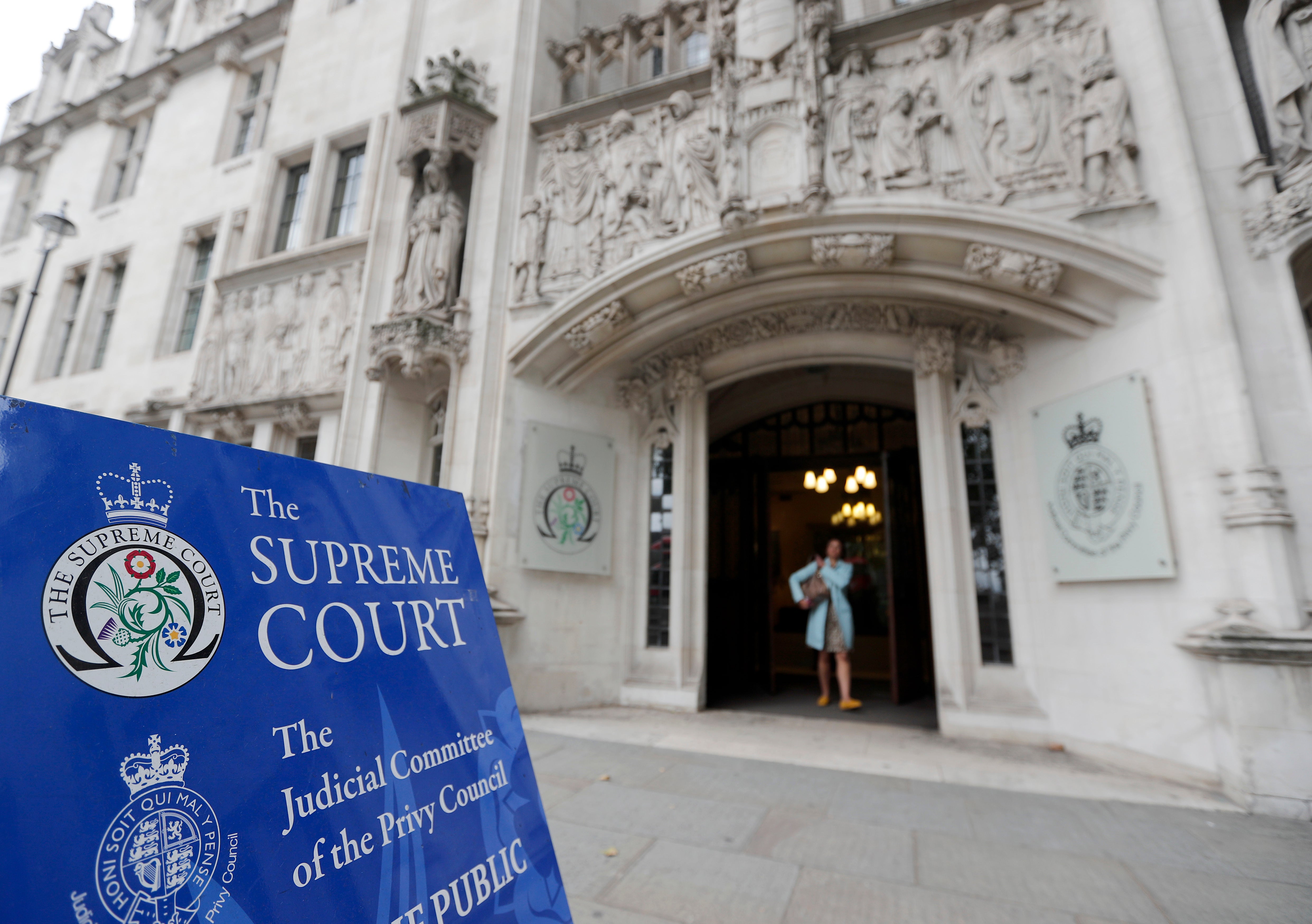LGBT+ rights groups have criticised today’s “incredibly worrying” Supreme Court ruling which states that the Equality Act’s definition of a woman is based on biological sex.
Judges unanimously decided that transgender women with a gender recognition certificate (GRC) should not be treated as a woman under the 2010 Equality Act.
The decision is in response to a challenge brought by campaign group For Women Scotland (FWS), over the inclusion of transgender women with GRCs in the 50 per cent female quota mandated for public boards in Scotland.
Stonewall UK said it shared a “deep concern at the widespread implications” of the ruling, and added it “will be incredibly worrying for the trans community.”
The Good Law Project criticised the court for not hearing evidence from trans people and wrote on social media: “This ruling sets a dangerous precedent and erases trans women from protections. It puts trans rights back 20 years.”
Key Points
- Legal definition of woman based on biological sex, court rules
- LGBT+ rights groups criticise judgement
- Scottish Government accepts court ruling
- Government responds to ruling
- Trans people still protected under Equality Act, judge says
What does the UK Supreme Court ruling mean for transgender women?
16:43 , Athena StavrouThe UK’s Supreme Court handed down a judgement on Wednesday, which has found that the terms “woman” and “sex” in the Equality Act refer to a biological woman and biological sex.
With potential long-lasting ramifications to how Britain treats its equalities policy, the dispute centres on whether or not somebody with a gender recognition certificate (GRC) recognising their gender as female should be treated as a woman under the 2010 Equality Act.
My colleague Holly Evans explains what the ruling means for transgender women:

What does the UK Supreme Court ruling mean for transgender women?
NHS to consider Supreme Court ruling in same-sex ward guidance update
16:13 , Athena StavrouThe Supreme Court ruling on the legal definition of a woman will be considered as NHS officials update guidance on same-sex wards.
Officials were already updating the guidance and have confirmed the ruling will be considered as they move forward.
Current NHS England guidance on the issue is laid out in a document from 2019 titled Delivering Same-sex Accommodation.
The document states: “Trans people should be accommodated according to their presentation: the way they dress, and the name and pronouns they currently use.”
It adds it “does not depend on their having a gender recognition certificate or legal name change”.
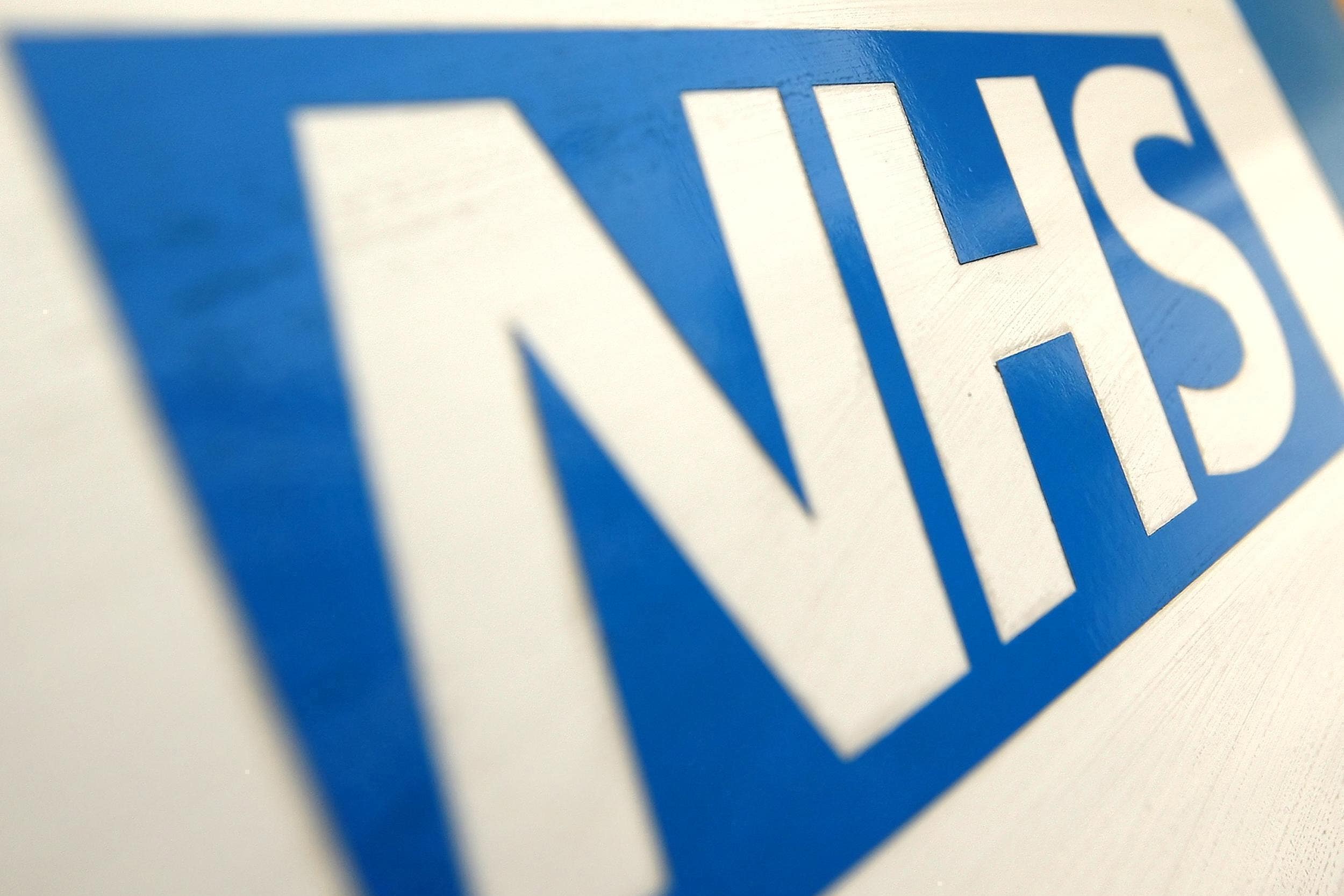
Fears ruling will be 'deliberately misrepresented as permission to discriminate'
15:56 , Athena StavrouActivists have expressed concern that today’s ruling could “open the door for bad actors” to discriminate against trans people.
The Trans Advocacy and Complaint Collective said that although the court has insisted trans people are still protected under the under the characteristics of gender reassignment, the ruling “creates confusion” that “will be weaponised”.
“It opens the door for bad actors to claim they can legally exclude, misgender, or deny services to trans people, especially trans women, by appealing to “biological sex” as a trump card,” it said
“In practice, this ruling will be misunderstood — in some cases, deliberately misrepresented — as permission to discriminate. It gives cover to those who have always sought to roll back trans rights, and it sends a chilling message: that the law will tolerate ambiguity when it comes to our safety and dignity.”
Trans women still protected under Equality Act, judges and campaigners stress
15:41 , Athena StavrouThe judges said that this interpretation of the law does not cause disadvantage to trans people, who were described as a “potentially vulnerable group”.
They said transgender people are still protected from discrimination, and “would be able to invoke the provisions on direct discrimination and harassment, and indirect discrimination” if needed.
The justices also said that trans people are protected from discrimination on the grounds of gender reassignment.
LGBT+ groups such as Stonewall UK also said in its statement: “It’s important to be reminded the court strongly and clearly re-affirmed the Equality Act protects all trans people against discrimination, based on gender reassignment, and will continue to do so.”
Trans women react to Supreme Court ruling
15:34 , Athena StavrouTransgender women have been responding to the Supreme Court’s ruling today.
Ella Morgan, a TV personality and trans campaigner said she was “speechless” when she saw the court’s decision.
“I woke up today and saw my rights as a human being have been taken away,” she told The Independent.
“Since I’ve been in the public eye, I’ve never been scared, but today was the first time I am worried for me and other trans people.”

Ms Morgan, who was the first trans woman to appear on Channel 4’s Married at First Sight UK, said: “I don’t know how some people will sleep at night when trans people are murdered, assaulted and brutally attacked because of this [ruling].”
She added: “If people think implementing laws will eradicate trans women, they are wrong.
“We have always existed and will always exist, this will never scare as away and if anything our fight will be stronger.”
What is a gender recognition certificate?
15:19 , Athena StavrouA person can apply for a certificate to have their affirmed or acquired gender legally recognised in the UK.
Obtaining a GRC requires a diagnosis of gender dysphoria, having lived in the acquired gender for at least two years and an intention to live in that gender for the rest of the applicant’s life.
The Supreme Court ruled today that even if trans women have a GRC, they are still not considered women under the Equality Act 2010.
Trans women can be excluded from single-sex spaces, court rules
14:50 , Athena StavrouWednesday’s Supreme Court ruling means that transgender women with a gender recognition certificate can be excluded from single-sex spaces if “proportionate”.
In an 88-page judgment, justices Lord Hodge, Lady Rose and Lady Simler, said that if “sex” did not only mean biological sex in the 2010 legislation, providers of single-sex spaces including changing rooms, homeless hostels and medical services would face “practical difficulties”.
The justices said: “Read fairly and in context, the provisions relating to single-sex services can only be interpreted by reference to biological sex.”
The justices later said that if sex had its “biological meaning” then service providers could separate male and female users into different groups, such as separate hostels for homeless people.
They added: “If sex means biological sex, then provided it is proportionate, the female only nature of the service … would permit the exclusion of all males including males living in the female gender regardless of GRC status.”
Supreme Court outcome 'clearly disappointing', says Amnesty International
13:45 , Bryony GoochAmnesty International’s UK Chief Executive Sacha Deshmukh has called the Supreme Court ruling that Trans women are not legally women under the Equality Act “clearly disappointing” and has emphasised that the ruling does not change the protection trans people are afforded.
He said: “The outcome of today’s judgment is clearly disappointing. It is a long and complex judgment, and we will take time to analyse its full implications.
“There are potentially concerning consequences for trans people, but it is important to stress that the court has been clear that trans people are protected under the Equality Act against discrimination and harassment.
“The ruling does not change the protection trans people are afforded under the protected characteristic of ‘gender reassignment’, as well as other provisions under the Equality Act.
“Amnesty intervened in this case to remind the court that legal gender recognition is essential for trans people to enjoy the full spectrum of rights each of us is entitled to, including safety, health and family life.
“The Supreme Court itself today made clear that the vilification of a marginalised minority group is absolutely wrong.”
“All public authorities in the UK need to unequivocally enforce protections for trans people against discrimination and harassment.”
Leader of Scottish Conservatives calls ruling a 'victory for common sense
13:43 , Bryony GoochLeader of Scottish Conservatives Russell Findlay has called the ruling a “victory for woman across the United Kingdom and a victory for common sense.”
Kemi Badenoch says 'you cannot change your biological sex'
13:39 , Bryony GoochLeader of the Opposition Kemi Badenoch has responded to the Supreme Court ruling over biological sex.
She posted on X:” Saying ‘trans women are women’ was never true in fact and now isn’t true in law, either.
“A victory for all of the women who faced personal abuse or lost their jobs for stating the obvious. Women are women and men are men: you cannot change your biological sex.
“The era of Keir Starmer telling us that some women have penises has come to an end. Hallelujah! Well done @ForWomenScot!”
JK Rowling congratulates For Women Scotland on Supreme Court Ruling
13:28 , Bryony GoochAuthor and campaigner JK Rowling has praised the Supreme Court ruling that a woman is defined as a biological sex under the Equality Act.
She said: “It took three extraordinary, tenacious Scottish women with an army behind them to get this case heard by the Supreme Court and, in winning, they’ve protected the rights of women and girls across the UK. @ForWomenScot, I’m so proud to know you.”
Scottish first minister says 'protecting the rights of all will underpin our actions'
13:26 , Bryony GoochJohn Swinney said: “The Scottish Government accepts today’s Supreme Court judgement.
“The ruling gives clarity between two relevant pieces of legislation passed at Westminster.
“We will now engage on the implications of the ruling.“Protecting the rights of all will underpin our actions.”
Full story: Trans women are not legally women under Equality Act, Supreme Court rules
12:52Trans women are not legally women under the Equality Act, the Supreme Court has ruled in a landmark judgment.
Campaign group For Women Scotland (FWS) brought a series of challenges – including to the UK’s highest court – over the definition of “woman” in Scottish legislation mandating 50 per cent female representation on public boards.
On Wednesday, five judges from the UK Supreme Court ruled unanimously that the terms "woman" and "sex" in the Equality Act refer to a biological woman and biological sex, in a decision that could have wide-ranging ramifications for trans women’s rights to use services and spaces reserved for women.
The Independent’s political correspondent Millie Cooke reports:

Trans women are not legally women under Equality Act, Supreme Court rules
Ruling 'incredibly worrying for the trans community', says Stonewall
12:37 , Athena StavrouStonewall UK has released a statement following today’s Supreme Court ruling.
CEO Simon Blake OBE, said: “Stonewall shares the deep concern at the widespread implications for today’s ruling from the Supreme Court. It will be incredibly worrying for the trans community and all of us who support them.”
The organisation, which is Europe’s largest LGBT+ campaign group, also reminded people that the court “strongly and clearly re-affirmed the Equality Act protects all trans people against discrimination, based on Gender Reassignment, and will continue to do so”.
Mr Blake said: “Once we read and fully digest the judgement, we will work with stakeholders across all sectors to provide as much clarity as possible.
“Stonewall will continue its work with the Government and parliamentarians to achieve equal rights under the law for LGBTQ+ people.”
Scottish Government accepts court ruling
12:14 , Athena StavrouFirst Minister John Swinney has said the Scottish Government “accepts today’s Supreme Court judgment”.
The Scottish Government lost a challenge against For Women Scotland on the legal definition of a woman.
Mr Swinney wrote on X: “The Scottish Government accepts today’s Supreme Court judgement. The ruling gives clarity between two relevant pieces of legislation passed at Westminster.
“We will now engage on the implications of the ruling. Protecting the rights of all will underpin our actions.”
Ruling will 'exclude trans people from participating in society', campaign group warns
12:06 , Millie CookeCampaigners have warned that the ruling will “exclude trans people wholesale from participating in UK society”.
jane fae, director of trans campaign group TransActual argued society will “divide more sharply into queer-friendly and queer-hostile spaces”, as a result of the ruling, adding that it will “be the poorer for it”.
“The entire trans community is devastated”, the campaigner told The Independent.
“Irrespective of the small print on this ruling, the intent seems clear: to exclude trans people wholesale from participating in UK society.
“This morning, we are feeling very alone. That, though, is today. We have come through worse before and trans people are not going away. Whatever the non-trans world throws at us, we will be back, each time, stronger than before.”
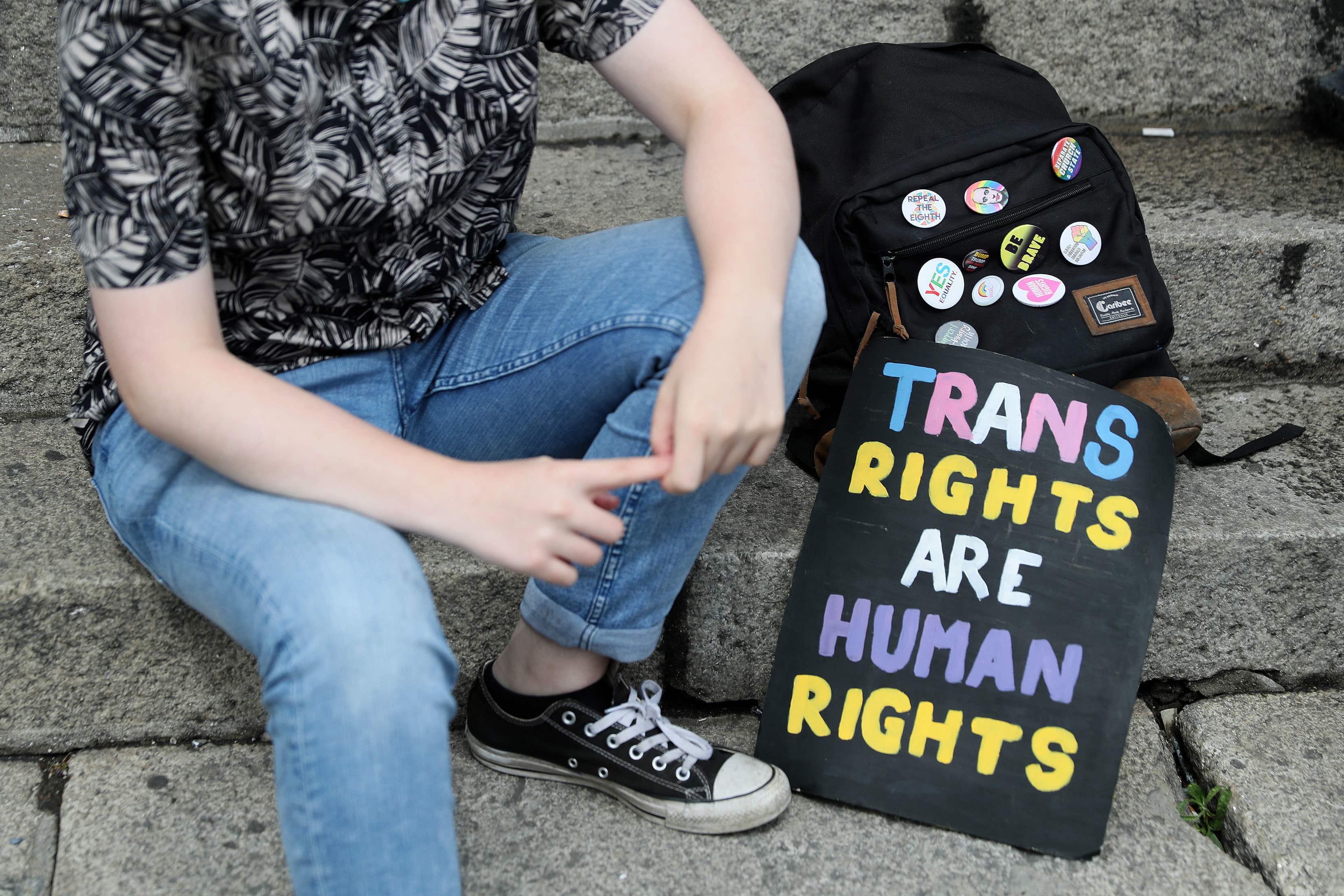
Recap: Supreme Court makes landmark ruling on legal definition of a woman
11:58 , Athena StavrouIf you are just joining us now - here is a recap of what has happened this morning:
- The Supreme Court has ruled that the Equality Act’s definition of a woman is based on biological sex.
- It accepted an appeal from For Women Scotland (FWS), who challenged the inclusion of transgender women with gender recognition certificate’s (GRC) in the Scottish government’s definition.
- LGBT+ rights campaigners have criticised the ruling, and expressed concern it could affect transgender people’s rights and protections.
LGBT+ organisations share support resources
11:52 , Athena StavrouA number of LGBT+ rights organisations have shared ways for transgender people to access support following today’s judgement.
As campaign groups and charities assess the extent of impact the ruling could have on transgender people’s rights, they have urged people “not to panic”.
The Good Law Project posted on social media: “On what is a really difficult day, here are some resources for our trans friends and allies.”
Harriet Harman says ruling correctly interprets Equality Act
11:45 , Athena StavrouFormer Labour MP Harriet Harman, who was involved in drafting the Equality Act 2010, said today’s ruling correctly interprets the law.
“The Supreme Court ruling correctly interprets the Equality Act, giving effect to our intention when drafting it,” she wrote on X.
“Single sex spaces for women are important & can exclude trans women but only where necessary. The Act, & ruling, protects rights of women while also respecting the rights of trans women.”
Scottish Greens say ruling 'deeply concerning'
11:38 , Athena StavrouThe Scottish Green Party has called today’s Supreme Court ruling “deeply concerning for human rights”.
The ruling excludes transgender women with a Gender Recognition Certificate from the Equality Act’s definition of a woman.
“This is a deeply concerning ruling for human rights and a huge blow to some of the most marginalised people in our society,” Scottish Greens MSP Maggie Chapman said.
“It could remove important protections and will leave many trans people and their loved ones deeply anxious and worried about how their lives will be affected and about what will come next.
“Trans people just want to be able to live their lives like any of us, without the fear of prejudice or violence, but today they have been badly let down.”
She added that the Scottish Greens will “continue to stand with trans people and resist the nasty and aggressive culture war that is being waged against them”.
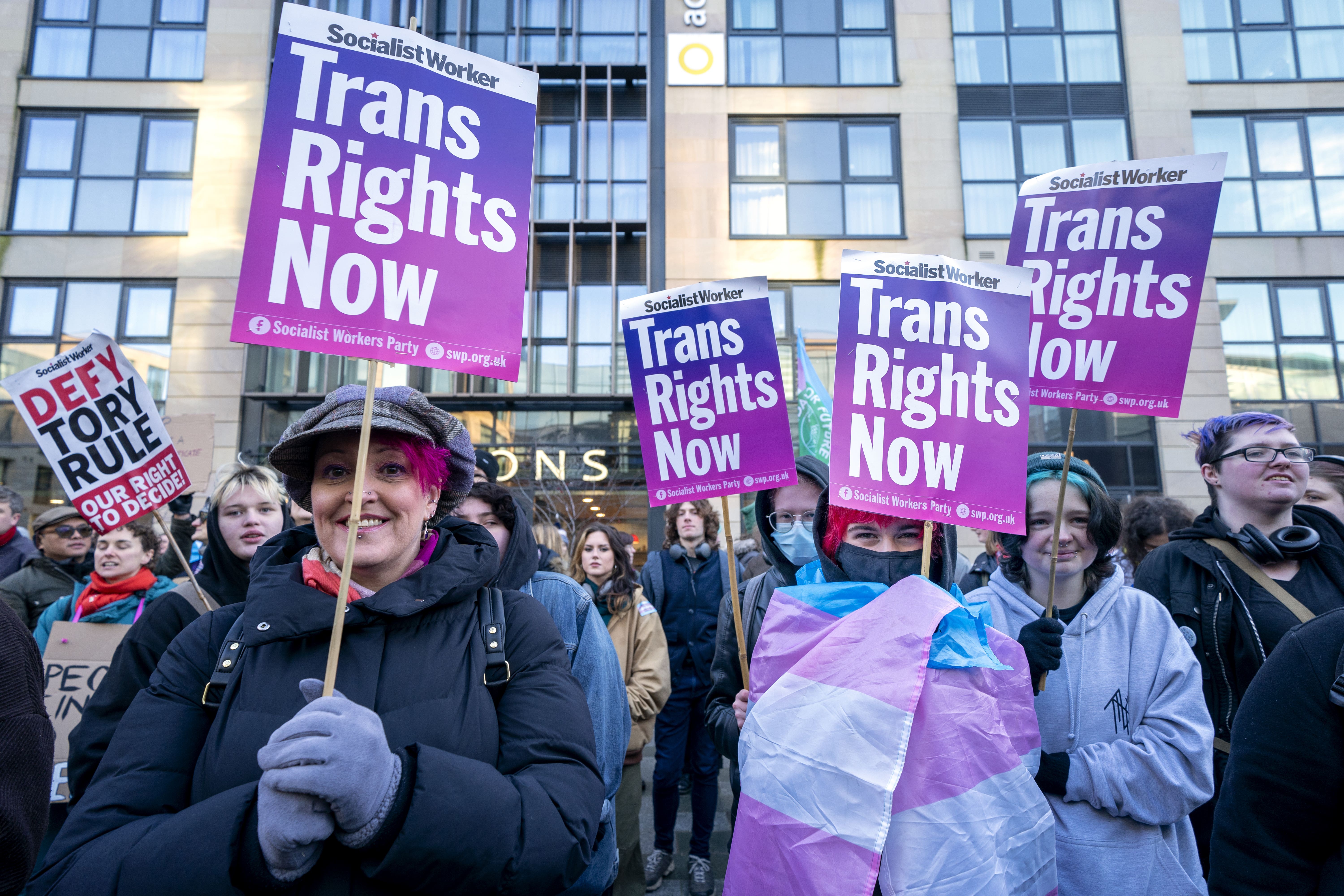
Labour group calls for party to 'stand firmly behind' LGBT+ community
11:19 , Athena StavrouLabour for Trans Rights have called the Supreme Court’s decision “hugely disappointing” and a result of “ceaseless lobbying from a well-funded anti-trans network”.
The group said: “Labour must not follow the example of Donald Trump, and must instead protect the Equality Act - one of Labour’s proudest pieces of legislation - and its legal protections for trans people.
“The Labour Party must stand firmly behind the LGBT+ community.”
Our statement on the Supreme Court's decision.
— Labour For Trans Rights (@Lab4TransRights) April 16, 2025
We will have more to say in due course. pic.twitter.com/HUJo4TeLo3
Government responds to ruling
11:16 , Athena StavrouReacting to the Supreme Court ruling, a government spokesman said: "We have always supported the protection of single-sex spaces based on biological sex.
"This ruling brings clarity and confidence, for women and service providers such as hospitals, refuges, and sports clubs.
"Single-sex spaces are protected in law and will always be protected by this government."
Trans rights groups 'disappointed' with judgement
11:12 , Athena StavrouA number of LGBT+ campaign groups have expressed their concern and disappointment at today’s judgement.
The ruling will likely affect the rights of transgender people and their access to single-sex spaces and protections.
Transgender rights campaign group TransLucent wrote on social media: “TransLucent is aware that many in the trans community will be extremely worried by this decision and its implications.
“We would like to reassure them that they are still protected from discrimination, victimisation and harassment because of their protected characteristic of gender reassignment.”
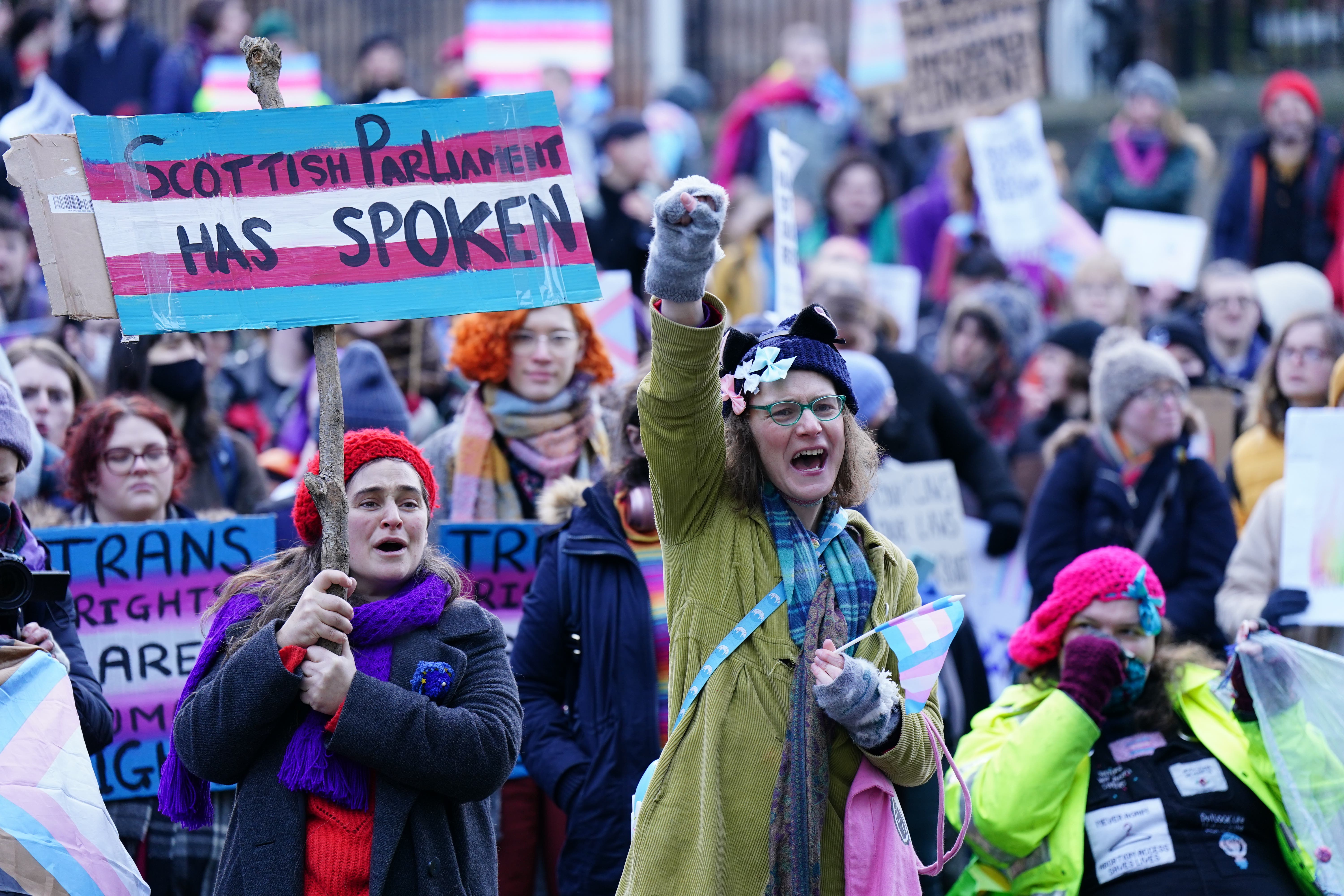
Pictured: Campaigners celebrate outside Supreme Court
11:02 , Athena Stavrou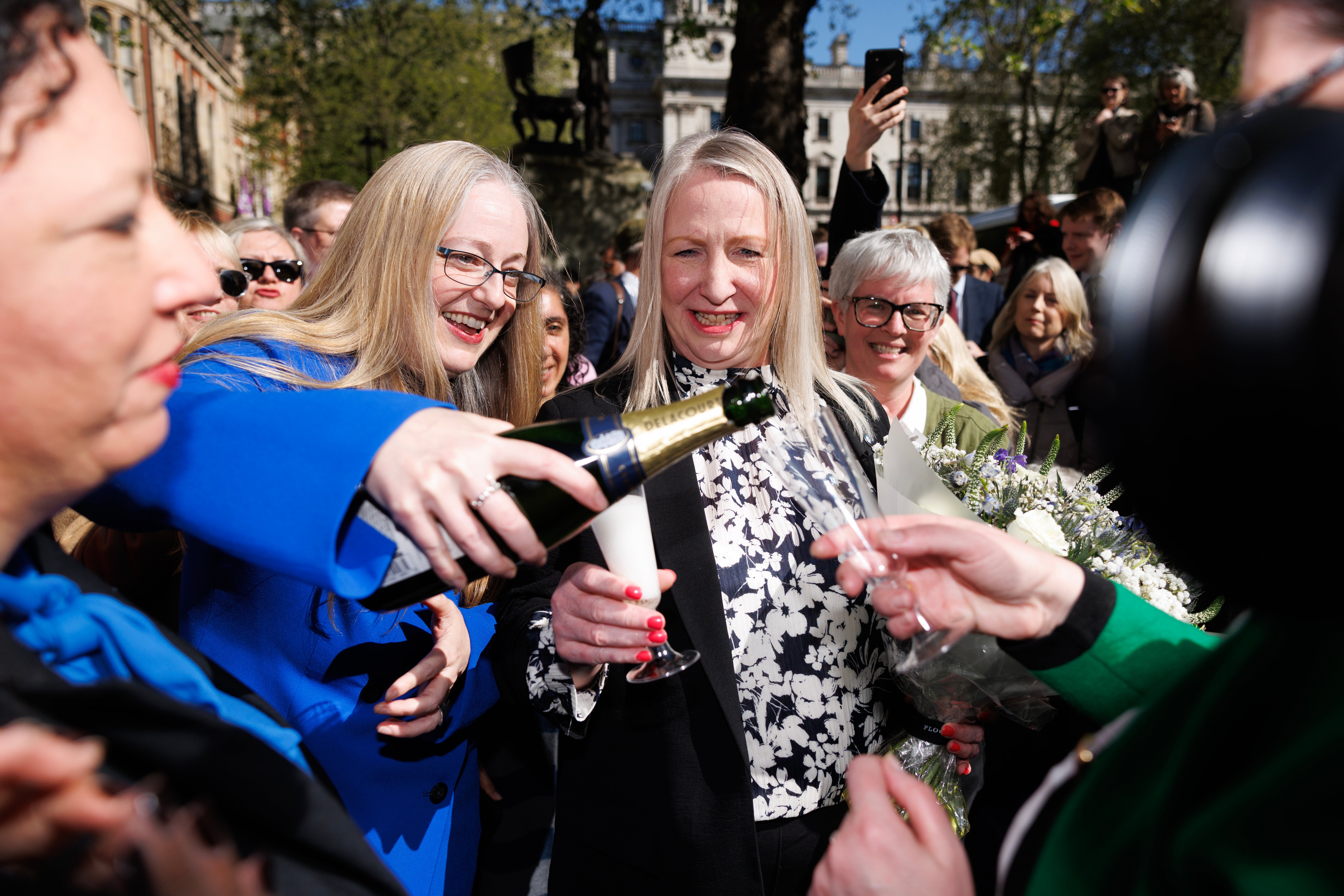
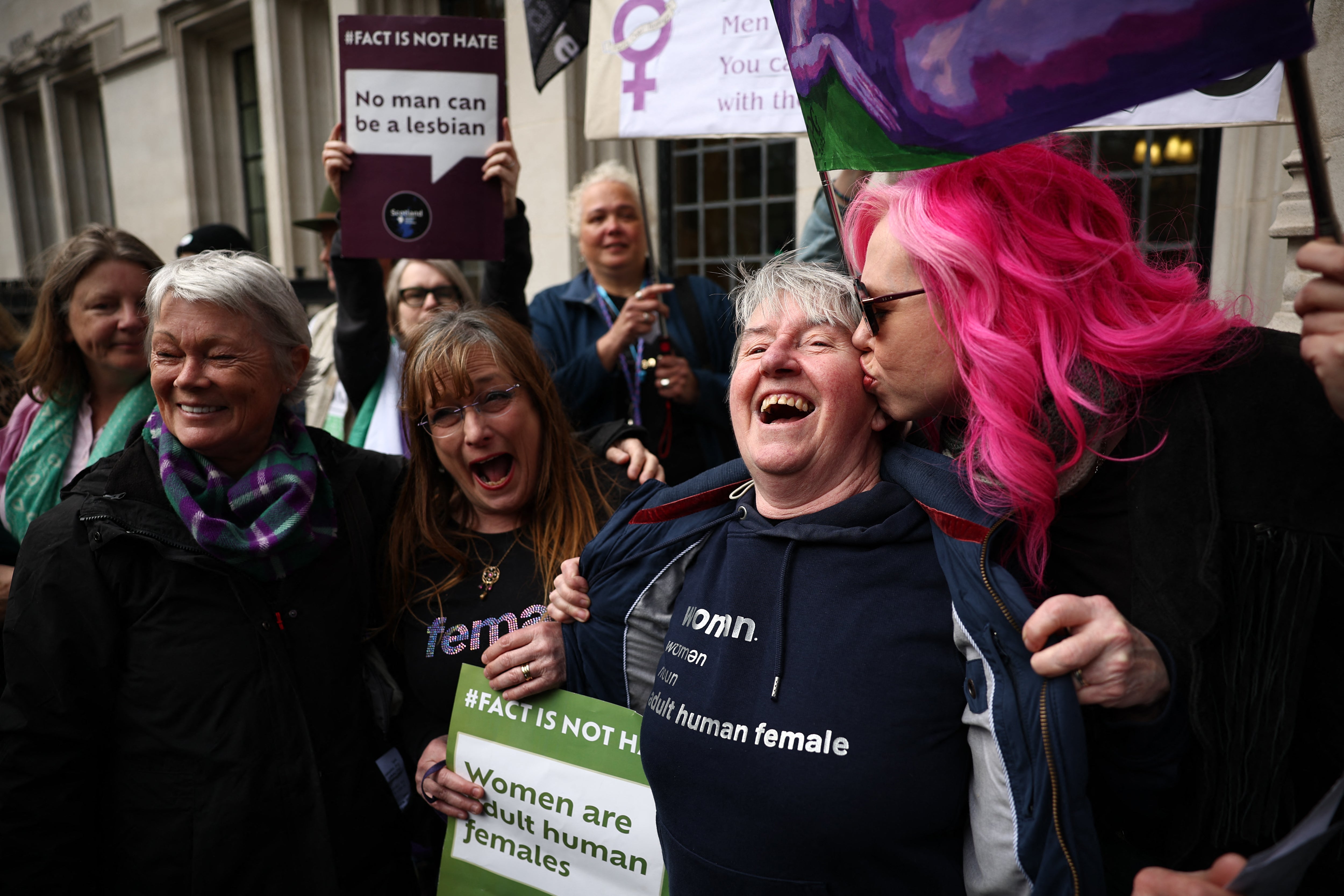
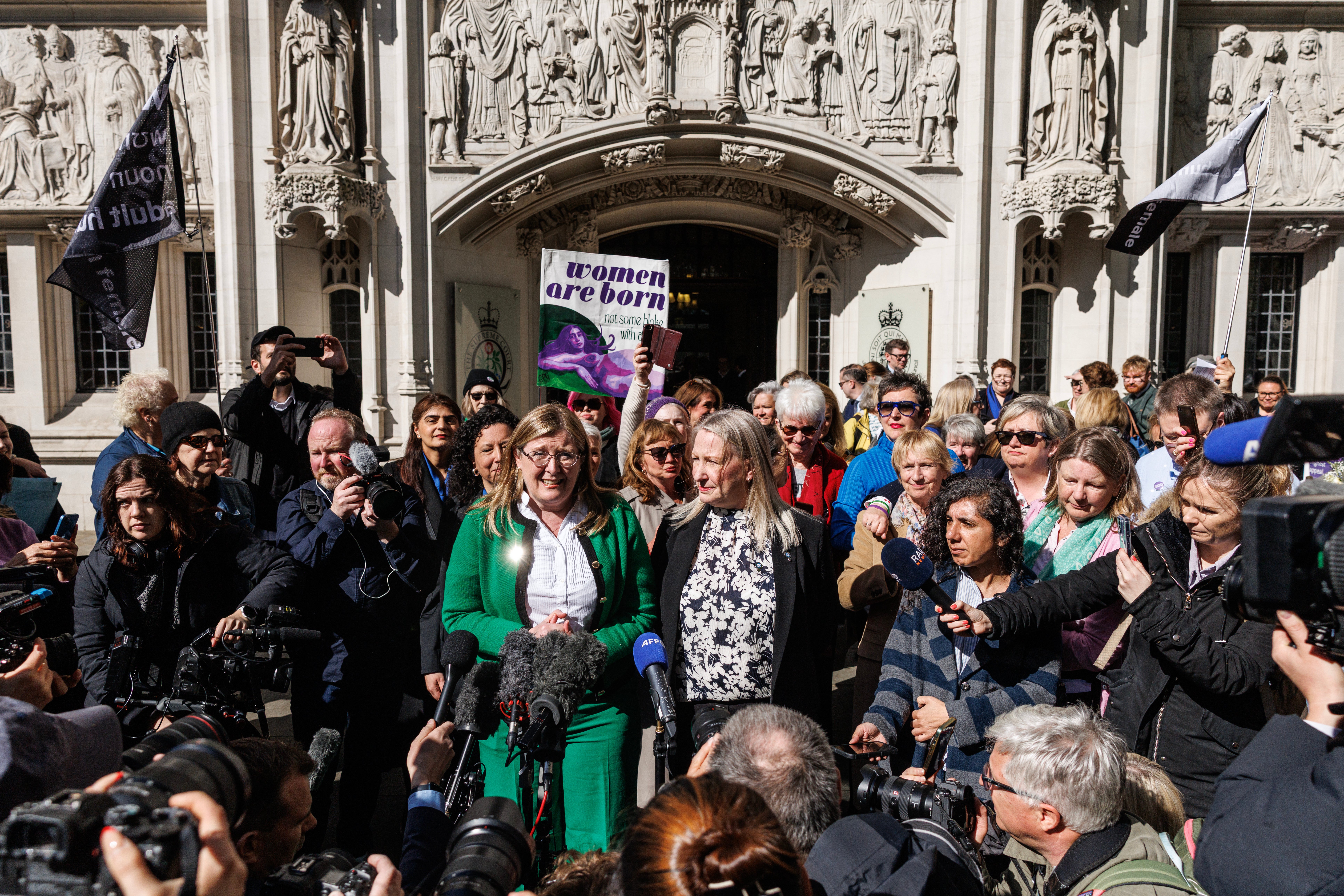
Ruling welcomed by Britain's equalities watchdog
10:58 , Athena StavrouBritain's equalities watchdog has welcomed the ruling as having addressed challenges around single-sex spaces.
Baroness Kishwer Falkner, chairwoman of the Equality and Human Rights Commission (EHRC), said: “Today the Supreme Court ruled that a gender recognition certificate does not change a person’s legal sex for the purposes of the Equality Act.
“We are pleased that this judgment addresses several of the difficulties we highlighted in our submission to the court, including the challenges faced by those seeking to maintain single-sex spaces and the rights of same-sex attracted persons to form associations.
“As we did not receive the judgment in advance, we will make a more detailed statement once we have had time to consider its implications in full.”
Campaigners react to judgement
10:52 , Athena StavrouFor Women Scotland (FWS) and other campaign groups have hailed the Supreme Court’s judgement today.
After the court unanimously accepted FWS’ appeal, the group wrote on X, they were “absolutely jubilant”, with some in tears.
Campaign group Sex Matters, which had made arguments in the case, said the court had given “the right answer”.
Maya Forstater, the group’s chief executive, said: “We are delighted that the Supreme Court has accepted the arguments of For Women Scotland and rejected the position of the Scottish Government.
“The court has given us the right answer: the protected characteristic of sex – male and female – refers to reality, not to paperwork.”
Kemi Badenoch praises Supreme Court decision
10:49 , Athena StavrouKemi Badenoch, Leader of the Conservative Party said:"Saying 'trans women are women' was never true in fact, and now isn’t true in law either.
"This is a victory for all of the women who faced personal abuse or lost their jobs for stating the obvious. Women are women and men are men: you cannot change your biological sex.
"The era of Keir Starmer telling us women can have penises has come to an end."Well done to For Women Scotland!"
Conservative shadow minister calls for clarification on existing government guidance
10:45 , Athena StavrouMims Davies, the Conservative shadow minister for women , said the Government needed to clarify existing guidance to reflect the Supreme Court’s ruling on the definition of “woman”.
In a post on X, Ms Davies said: “Huge well done to FWS (For Women Scotland).
“We Conservatives have been warning the Government for months about the preparation they would need to do ahead of this judgement – it’s now time for them to clarify all existing guidance to make sure that public bodies are clear that sex means biological sex.”
Huge well done to FWS.
— Mims Davies MP (@mimsdavies) April 16, 2025
We @Conservatives have been warning the Government for months about the preparation they would need to do ahead of this judgement - it's now time for them to clarify all existing guidance to make sure that public bodies are clear that sex means biological… https://t.co/uReKdeQ9Sq
She added: “This morning’s decision is important for women right across our country.
“This is a clear victory for common sense – and should never have taken a court case to prove the biological definition of a woman.”
What does today's judgement say:
10:43 , Athena StavrouToday, the supreme court ruled: “The terms woman and sex in the Equality Act 2010 refer to a biological woman and biological sex.”
In an 88-page judgment, Lord Hodge, Lady Rose and Lady Simler said that while the word “biological” does not appear in the definition of man or woman in the Equality Act, “the ordinary meaning of those plain and unambiguous words corresponds with the biological characteristics that make an individual a man or a woman”.
The justices added that interpreting biological sex with GRCs would “cut across the definition of the protected characteristic of sex in an incoherent way”.
They continued: “We can identify no good reason why the legislature should have intended that sex-based rights and protections under the EA 2010 should apply to these complex, heterogenous groupings, rather than to the distinct group of, biological, women and girls, or men and boys, with their shared biology leading to shared disadvantage and discrimination faced by them as a distinct group.”
Watch moment judges rule on legal definition of a woman
10:36 , Athena StavrouWatch the moment UK Supreme Court judges ruled that the Equality Act’s definition of a woman is based on biological sex on Wednesday, 16 April.
Five judges unanimously decided that transgender women with a gender recognition certificate (GRC) should not be treated as a woman under the 2010 Equality Act.
The decision came after a challenge presented by the For Women Scotland (FWS) group over the inclusion of transgender women with GRCs in the 50 per cent female quota mandated for public boards in Scotland.
The group’s case against the Scottish Government was rejected by judges in Edinburgh in 2022. Its appeal was allowed by the Supreme Court on Wednesday morning. Justices unanimously ruled in FWS’s favour.
Holly Patrick reports:

Watch moment judges rule on legal definition of a woman in landmark decision
Trans people still protected under Equality Act, judge says
10:35 , Athena StavrouAfter ruling that the Equality Act’s definition of a woman is based on biological sex, Lord Hodge clarified that transgender women still have protection under the 2010 Act.
“As I shall explain later in this hand down speech, the Equality Act 2010 gives transgender people protection, not only against discrimination through the protected characteristic of gender reassignment, but also against direct discrimination, indirect discrimination and harassment in substance in their acquired gender,” he said.
"This is the application of the principle of discrimination by association.
"Those statutory protections are available to transgender people, whether or not they possess a gender recognition certificate."
More detail from judgement
10:31 , Athena StavrouIn an 88-page ruling, Lord Hodge, Lady Rose and Lady Simler said: “The definition of sex in the Equality Act 2010 makes clear that the concept of sex is binary, a person is either a woman or a man.
“Persons who share that protected characteristic for the purposes of the group-based rights and protections are persons of the same sex and provisions that refer to protection for women necessarily exclude men.
“Although the word ‘biological’ does not appear in this definition, the ordinary meaning of those plain and unambiguous words corresponds with the biological characteristics that make an individual a man or a woman.
“These are assumed to be self-explanatory and to require no further explanation.
“Men and women are on the face of the definition only differentiated as a grouping by the biology they share with their group.”
LGBT+ groups respond to judgement
10:26LGBT+ rights groups have begun responding to the Supreme Court’s judgement.
The Good Law Project criticised the court for not hearing evidence from trans people and wrote on social media: “This ruling sets a dangerous precedent and erases trans women from protections. It puts trans rights back 20 years. We won't stop fighting for trans rights”
Scottish Trans told people “not the panic” as it worked to “properly understand what the court has decided today.”
It wrote on Bluesky: “There will be lots of commentary coming out quickly that is likely to deliberately overstate the impact that this decision is going to have on all trans people’s lives. We’ll say more as soon as we’re able to. Please look out for yourselves and each other today.”
Legal definition of woman based on biological sex, court rules
10:07 , Athena StavrouSupreme Court judges have unanimously accepted For Women Scotland’s (FWS) appeal, and ruled that the Equality Act’s definition of a woman is based on biological sex.
Reading the judgment, Lord Hodge added: “But we counsel against reading this judgment as a triumph of one or more groups in our society at the expense of another.”
Judges begins ruling on appeal
09:56 , Athena StavrouJudges at the UK’s highest court have begun handing down their judgment on the legal definition of a woman.
Pictured: Campaigners stand outside Supreme Court
09:51 , Athena Stavrou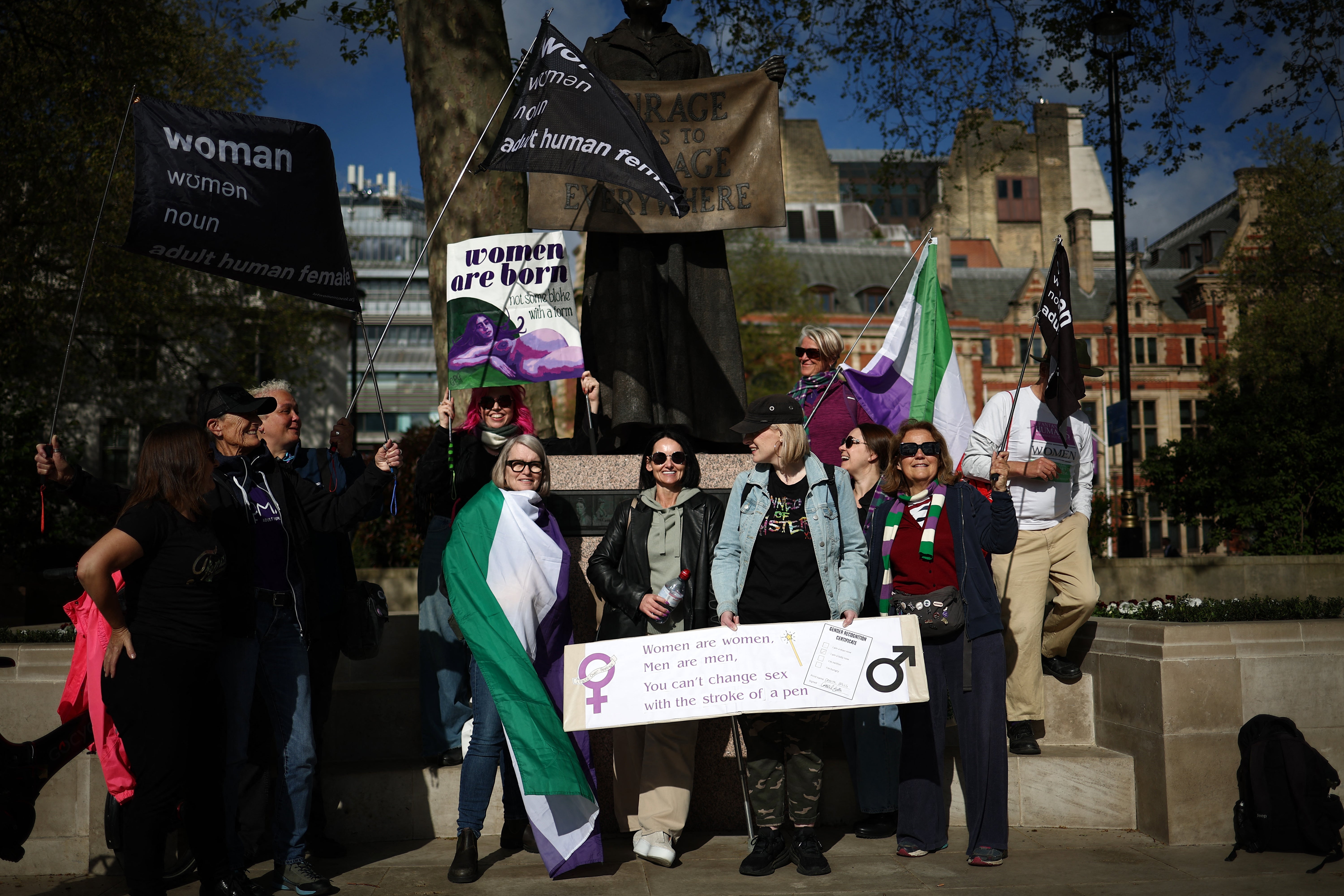
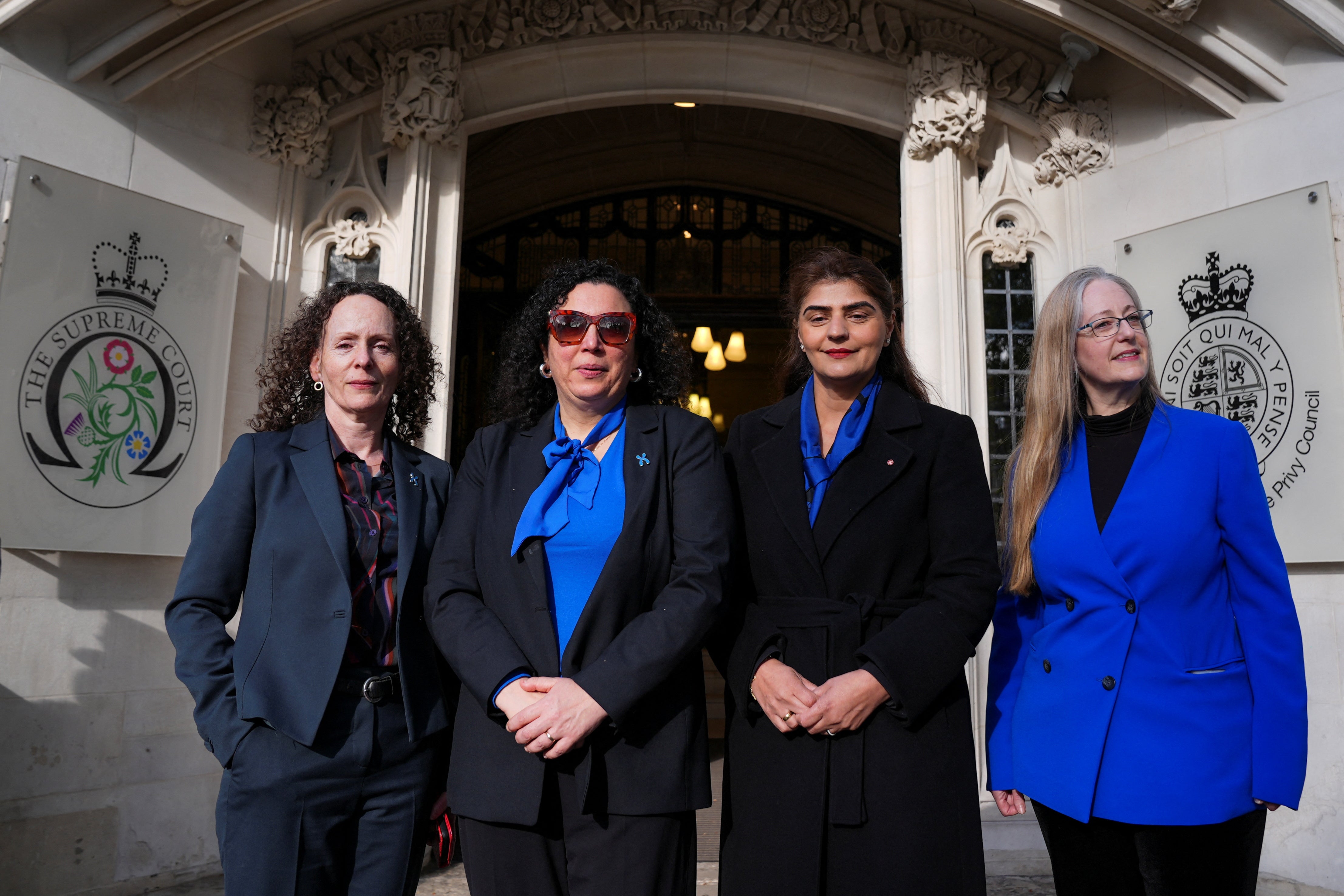
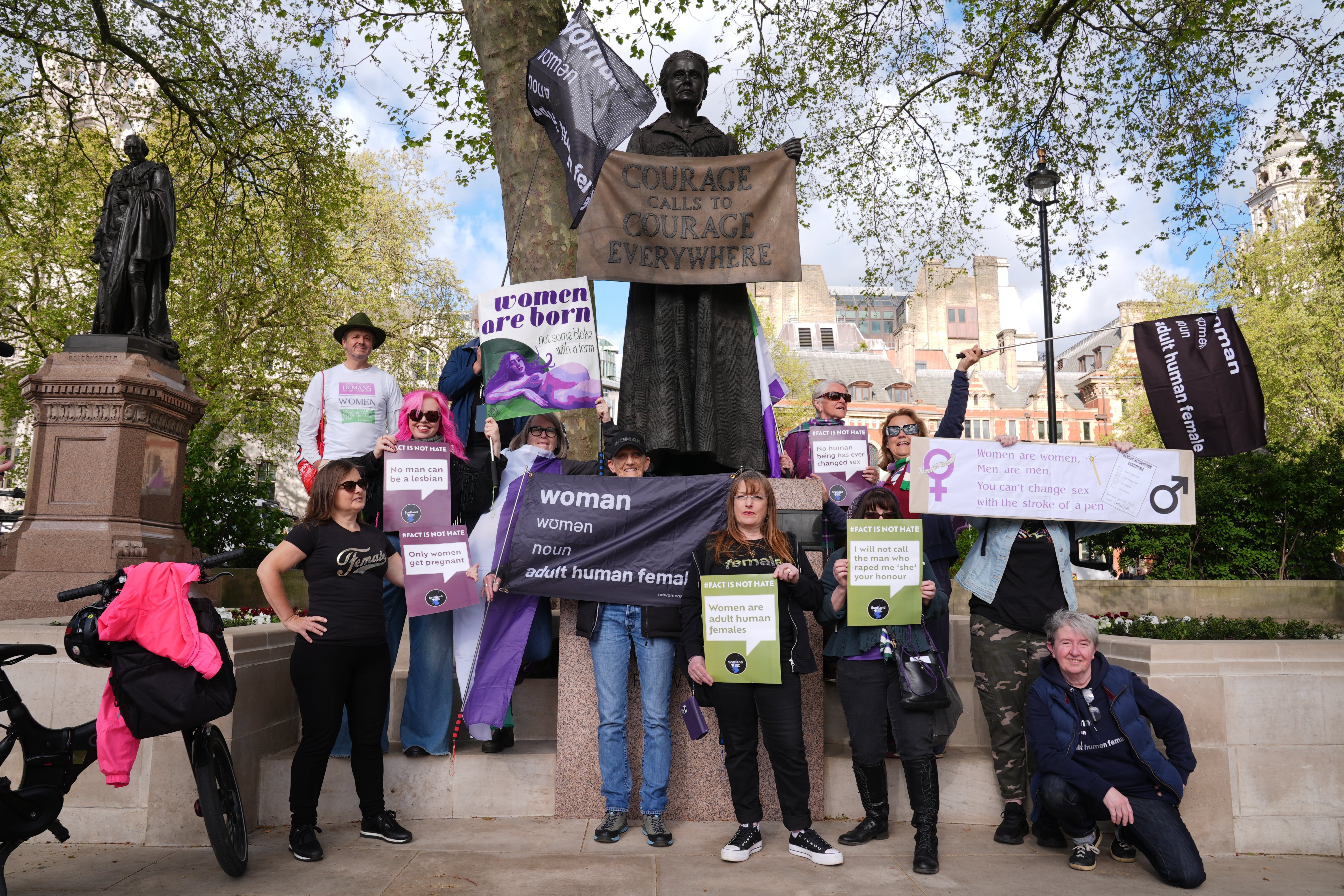
How could the ruling affect rights?
09:42Although the outcome of today’s ruling will not directly change the Equality Act 2010, it will likely prompt calls for it to be revisited.
If the court rules in favour of campaign group For Women Scotland (FWS), it could impact whether transgender women with gender recognition certificates (GRC) can access single-sex spaces.
Amnesty International UK has intervened in the case and has previously said: “Legal gender recognition as it works now is essential for trans people to enjoy the full spectrum of human rights each of us is entitled to, and live free from fear of discrimination.”
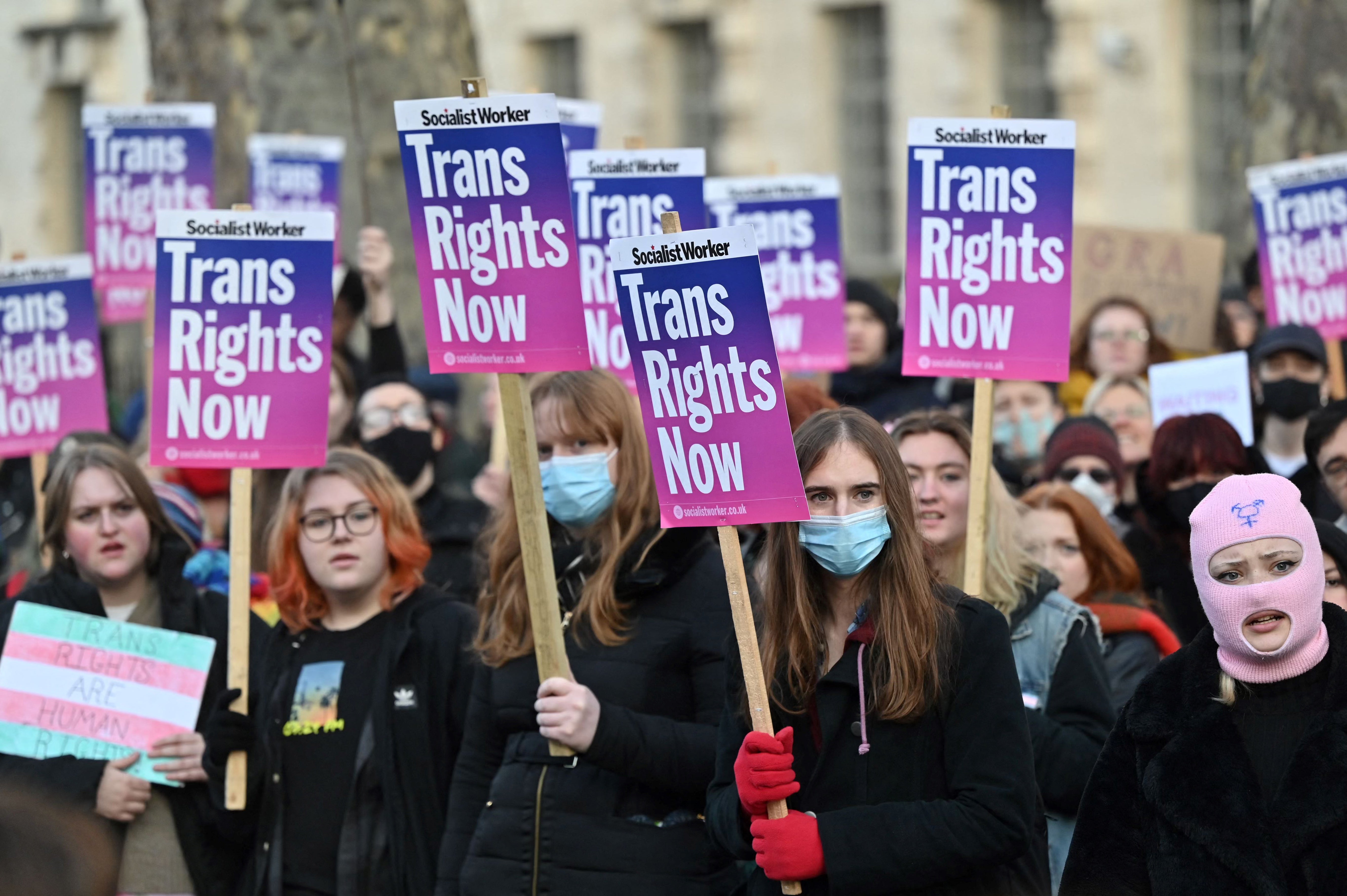
Who is involved in the case?
09:22 , Athena StavrouThe case is being fought between campaign group For Women Scotland (FWS) and the Scottish Government.
FWS is appealing a decision made by a Scottish court to reject its challenge to the government’s inclusion of transgender women with a female gender recognition certificate (GRC) in its definition of a woman.
FWS is a gender-critical campaign group, which is partly funded by JK Rowling and has been backed by campaign group, Sex Matters.
FWS previously said that not tying the definition of sex to its “ordinary meaning” could have far-reaching consequences for sex-based rights.
The Scottish Government on the other hand, has said a GRC affected a “change in legal status”, and that someone with a GRC “becomes recognised as belonging to, or becoming, the sex of their acquired gender”.
Supreme court judgement latest in series of challenges
09:05 , Athena StavrouThe dispute first came to court in 2022, when For Women Scotland (FWS) challenged a 2018 law passed by the Scottish Parliament.
The law stated that there should be a 50 per cent female representation on the boards of Scottish public bodies, and included transgender women in its definition of woman.
FWS successfully challenged the law, prompting Scottish officials to issue guidance that the definition of "woman" included a transgender woman with a gender recognition certificate (GRC).
FWS challenged this revised guidance again, but its challenge was rejected by a court in 2022.
However, it was granted permission last year to take its case to the Supreme Court, which will hand down its judgement today.
Judges to hand down landmark ruling on definition of a woman
08:58 , Athena StavrouThe Supreme Court is set to deliver a landmark ruling on the legal definition of a woman on Wednesday morning.
At the heart of the dispute is the question of whether transgender women with a gender recognition certificate (GRC) should be treated as a woman under the 2010 Equality Act.
The ruling comes in response to a challenge brought by campaign group For Women Scotland (FWS), over inclusion of transgender women with Gender Recognition Certificates (GRCs) within the 50 per cent female quota mandated for public boards.
The court's decision will have far-reaching implications for how sex and gender are legally defined and applied across various aspects of UK law.
It will also likely effect the rights of transgender women to use single-sex spaces and services.
